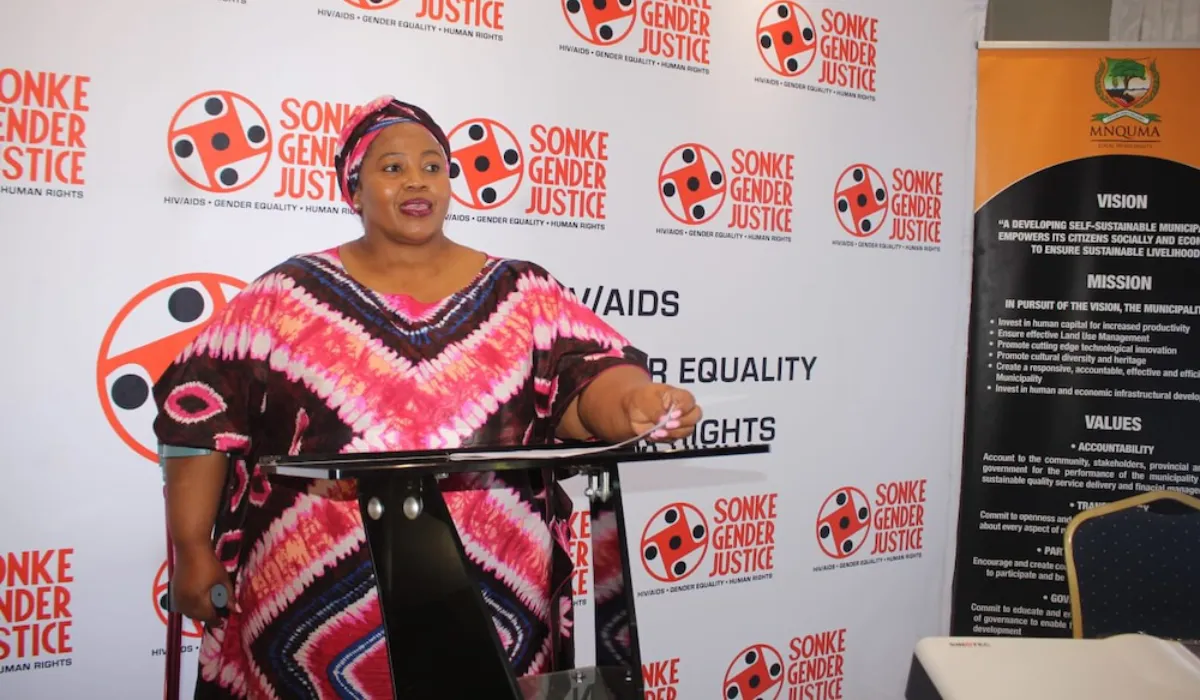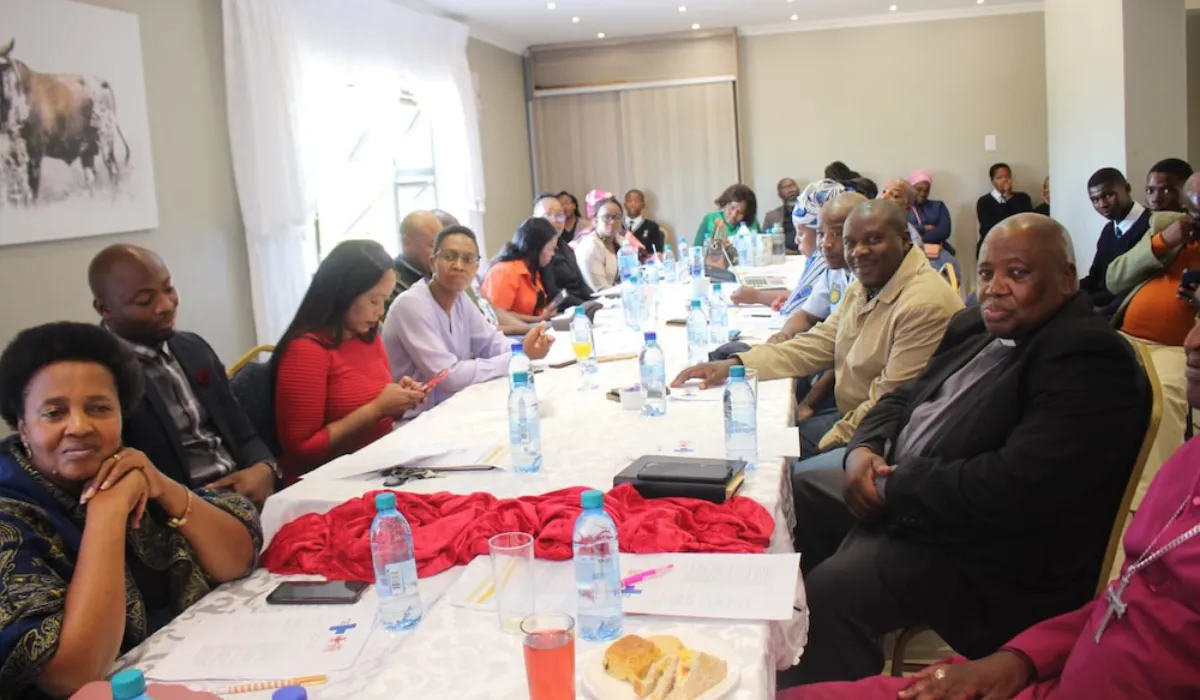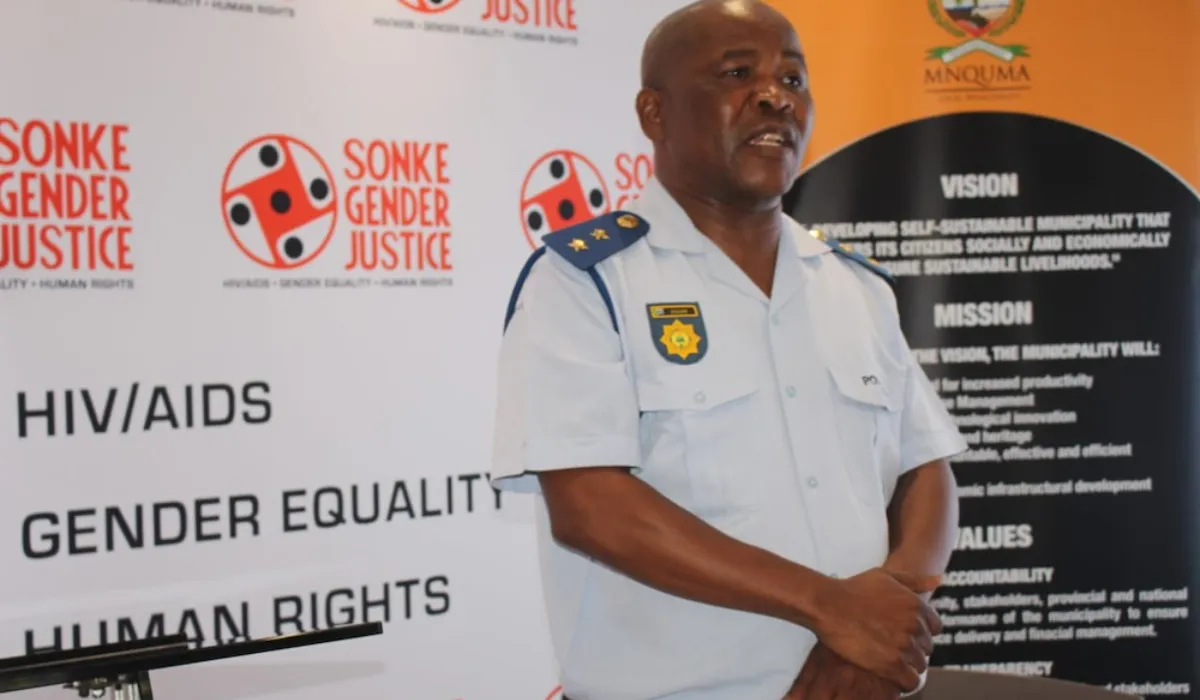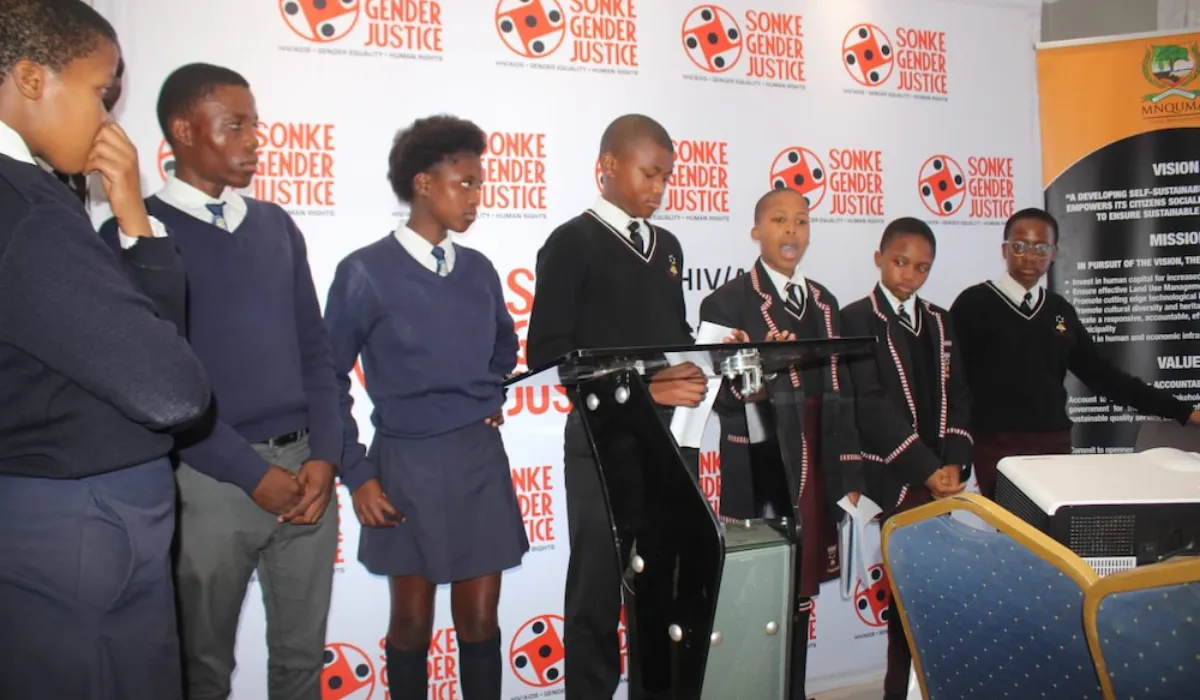Sonke Gender Justice in partnership with donor Kindernothilfe, KNH launched the Promotion of children: SRHR, advocacy and youth participation project in Butterworth, Eastern Cape on the 14th of May 2024. The purpose of the launch was to communicate its kick-off to its strategic partners, stakeholders, and communities and to strengthen project buy-in and ownership by the key stakeholders.
The project seeks to strengthen the rights of children and youth by protection against sexual and gender-based violence and promoting advocacy in Eastern Cape communities. “We are happy with this partnership and are looking forward to its implementation throughout the 3 year period. One of our requirements for a partner to get funding is that an organisation must be upholding children’s rights and that there must be inclusive and meaningful participation of all stakeholders within projects, and Sonke was able to meet that criteria.” said Kindernothilfe’s Phillip Mokoena.

The project will be implemented in the Nelson Mandela Bay Metropolitan Municipality in Zwide and Motherwell communities as well as in the Amathole District in the communities of Mbashe and Mnquma.
AmaXhosa Kingdom Spokesperson Chief Ndabele Mtoto who was part of the feasibility study of the project urged Sonke management to engage with King Vulikhaya- Ahlangene Sigcawu to endorse the project. ‘’ Sonke must solicit the King’s buy in, given that all chiefs and community leaders will be compelled to attend the training on capacity building on gender based violence and femicide, this will also ensure that we fully support this project’’.
Through its implementation, adolescents and youth will be able to advocate for gender justice and meaningfully participate in decision-making spaces from local to national level. Caregivers and religious leaders will also be enabled to advocate against harmful religious, traditional, and social gender norms and practices.
Motshidisi Ramadi, Sonke’s Programmes Director says young people will be actively involved ‘’ We want to see the youth of these areas being involved in the prevention of gender based violence, informing policies and advocacy work that we will be doing, they are not just going to be beneficiaries or program participants then it ends there, as we seek to realise meaningful participation and not tokenism’’.

‘’The co-creation of this project proposal was a consultative and informed process which included representation of various stakeholders from the communities that the project will be implemented at, such as young people and community leaders. We encourage everyone here today to be our mouthpiece and support the project moving forward. Gender based violence is everyone’s concern and we need to all hold hands together and fight it‘’ Ramadi adds.
Speaking on behalf of the Department of Social Development, Nkosi Mankayi, said the government alone does not have the capacity to fight gender based violence, it needs a multisectoral approach, as such the department prioritises partnering with NGOs to be able to accelerate intervention programs. ‘’Sonke is one of the key partners of the department, we have recently rolled out a parenting programme Mencare 50/50, and today we are here witnessing the kick off of the youth and child led gender based violence prevention and advocacy project in the two municipalities, we are ready to support the work as it complements our mandate. ‘’.
The Eastern Cape province is known for having the highest gender based violence rate in the country at double the national rate, and children are a large proportion of these cases. Efforts to engage youth and children in the province currently exist, but it remains uncertain to what extent they result in participation in policymaking.

During the launch pupils from the Nondwe Senior Secondary and Ndabankulu High school whose ages range from 15 to 17 years, shared what they believed were challenges facing the current generation of youth and what they thoughts solutions to those challenges were. They indicated the challenges to be unemployment, bullying, teenage pregnancies, peer pressure, alcohol and substance abuse among others. The learners recommended that the government increase the age limit of the legal age for alcohol consumption and entry to nightclubs in South Africa from 18 years to 21 years, as they believe by 18 years one is not fully mature to make informed decisions.
They also recommended a child support voucher instead of the current grant for unemployed mothers, as they said this could minimise the irresponsible use of social grants, as well as calling upon traditional leaders to end village boys feuds that often lead to high rate of murders in Eastern Cape communities.
The newly launched project, is expected to realise the project outcome as follows: “Enabled environment for adolescents and youth to influence gender responsive policy implementation in the Eastern Cape Province.”.


